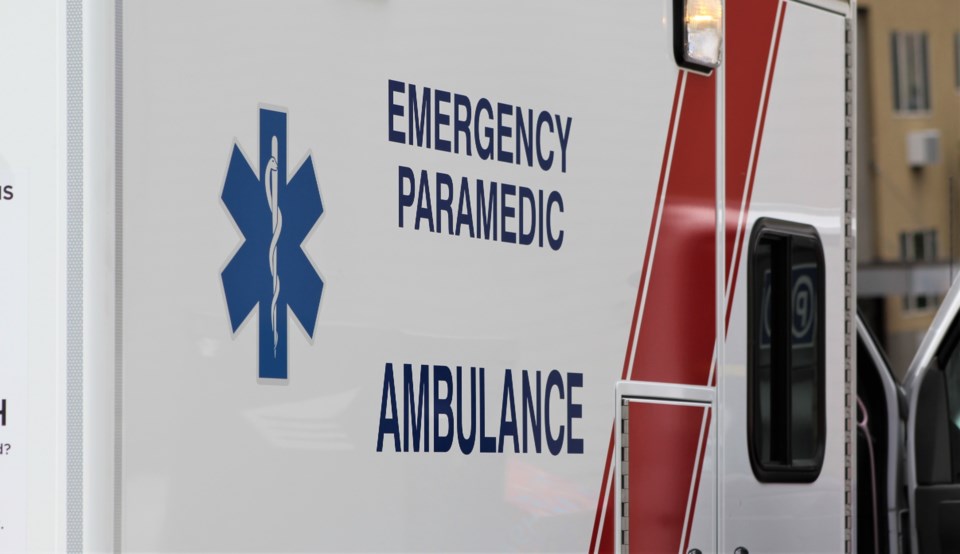B.C. Health Minister Adrian Dix has expressed confidence in the province’s plan to manage call waits to 911 for ambulance service, which spiked again over the Thanksgiving weekend, but the ambulance union says so far it is not working.
The Health Ministry is converting 24 rural ambulance stations to around-the-clock operations, and funding 85 new full-time paramedics and 30 full-time dispatchers.
“We’re in the process of hiring both more ambulance paramedics and more dispatchers, and adding ambulance capacity across B.C. in both urban and rural and remote communities,” Dix said during a news conference on Tuesday.
Asked if the addition of 30 ambulance dispatchers is enough given the call delays on the weekend, Dix said: “I believe so.” He also said there was a need to get paramedics and ambulances in and out of hospitals quicker.
Troy Clifford, provincial union president for the Ambulance Paramedics of BC and Emergency Dispatchers of BC, which represents 4,500 paramedics, call takers and dispatchers, said he’s confident the province and new management at BC Emergency Health Services is trying and confirmed 30 dispatchers announced in the summer were added, but there staff shortages remain.
“When I hear what I’m hearing from E-Comm and paramedics and dispatchers about what went on on the weekend, which are not new issues, that’s concerning that we just have not done enough in a timely fashion,” Clifford said. “We need to do more.”
Clifford said the health minister is receptive to working with the union. “There’s acknowledgement it’s unacceptable, but what are we doing to fix it? Obviously, if we don’t have enough dispatchers to answer the calls in a timely fashion, then we need more dispatchers.”
E-Comm 911 strives to answer calls in five seconds or less and while the average wait was 20 seconds over the weekend, one caller waited 13 minutes on Sunday, communications manager Kaila Butler said Wednesday. The bottleneck is in trying to transfer calls to BC Emergency Health Services, which is the provincial organization responsible for ambulance call-taking and dispatch.
Oliver Grüter-Andrew, president and CEO of E-Comm, acknowledged in a statement last month how “incredibly difficult” it is for people to be on 911 calls waiting for the ambulance service to answer. The delays, he said, are “directly related to the staffing levels at BC Emergency Health Services.”
The E-Comm call taker must stay on the line until they have been connected to the requested emergency service agency. Over several months there’s been continued and consistent delays in attempting to transfer calls for an ambulance to BCEHS resulting in “significant delays on the 911 lines as our staff are unavailable to answer other incoming calls, not only for ambulance, but also for urgent police and fire response,” Grüter-Andrew said.
Grüter-Andrew said E-Comm has enough staff provided agencies are able to accept call transfers in a timely manner. “This is an incredibly serious issue that has been difficult not just for the public, but also for our staff who are forced to wait on the line with callers in medical distress, while seeing that other incoming 911 calls are on hold as a result,” he said.
The risk to public safety as a result of the BCEHS delays is of “serious and growing concern to our organization,” said Grüter-Andrew.
BC Emergency Health Services said Wednesday its daily call volume leading up to and through the long weekend consistently averaged 2,000 calls, up from an average of 1,400 to 1,500. BCEHS said it took action to mitigate the situation, including increasing staffing at dispatch centres to assist with call-taking.
Interim chief ambulance officer Leanne Heppell is working with dispatch leaders to ensure dispatch centres can meet high demand, said the ambulance service.
The public is asked to call 911 only if they have an emergency. If medical advice is needed, call 811 to speak to a nurse. If the medical call is not urgent and it’s safe to do so, find alternative transport to the hospital, BCEHS advises.
The government was under fire last week at the opening of the legislature’s fall session as the Liberals and the Greens asked about ambulance wait times and the high death toll during the heat dome in late June.




